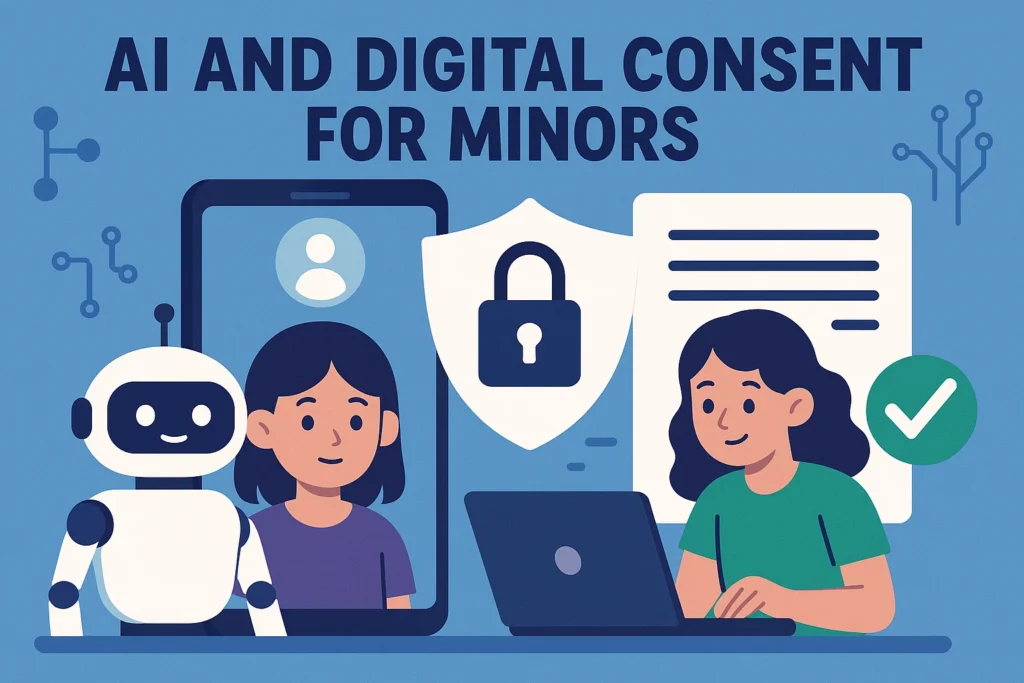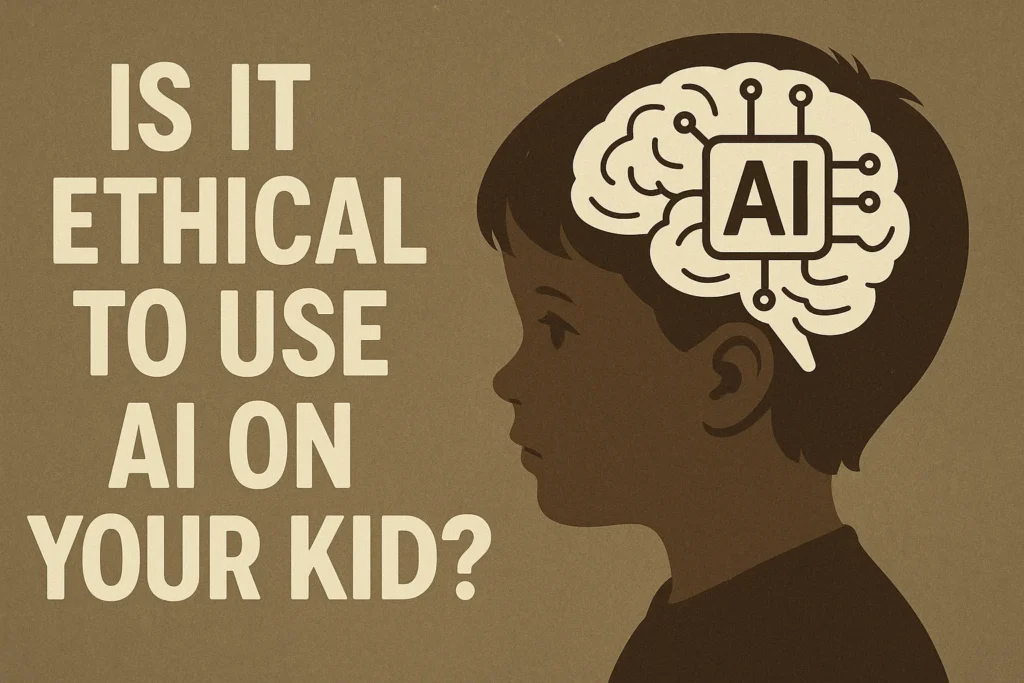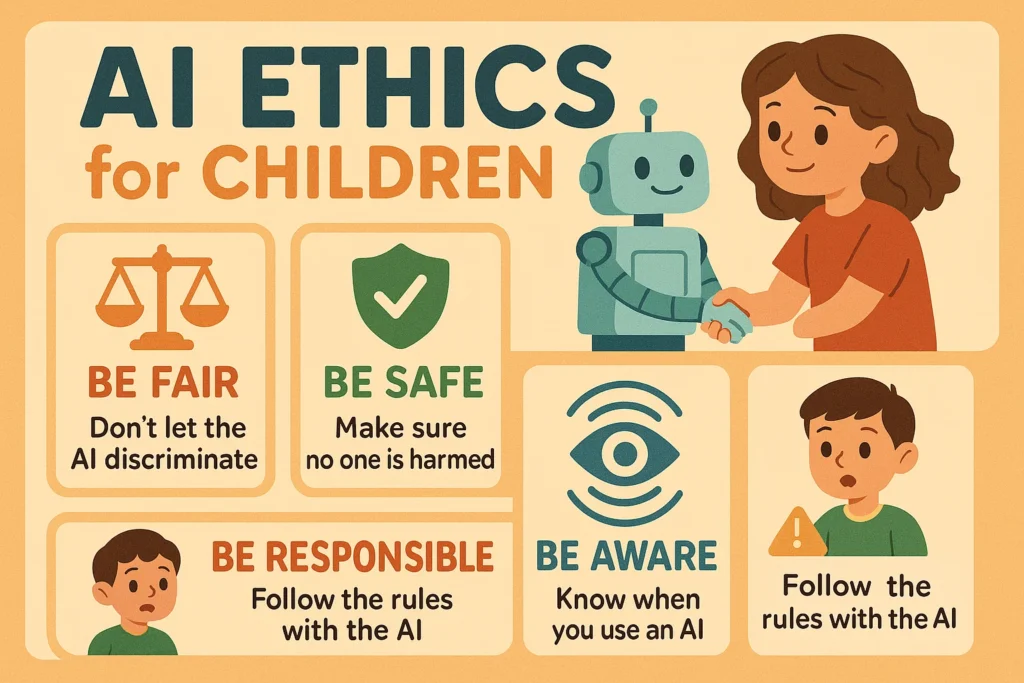🌟 Introduction
Children today are growing up surrounded by smart devices, learning apps, and AI-powered platforms. But as they use these tools, a critical question arises: can minors give true digital consent when AI collects their data? At AiBlogQuest.com, we dive into the importance of AI and Digital Consent for Minors and what parents should do to keep kids safe online.
📌 Why Digital Consent Matters for Minors
-
AI collects personal data 📝 – voice, photos, and usage patterns.
-
Minors can’t fully understand consent ⚠️ – they may agree without knowing the risks.
-
Parents play a vital role 👨👩👧 – guiding children about privacy and ethical technology use.
🧾 5 Things Parents Must Know About AI and Digital Consent
-
AI Apps Often Collect Hidden Data 📱
Many free apps ask for unnecessary permissions (location, contacts, camera). Parents should monitor what’s being shared. -
Minors Can’t Give Informed Consent 🧒
Kids may click “accept” without realizing how their information will be stored, shared, or sold. -
Parental Oversight Is Crucial 👀
Always review app settings, privacy policies, and create family rules for downloads. -
Explain Consent in Simple Terms 💡
Use kid-friendly language: “When you click accept, it means they can use your pictures or voice.” -
Teach Long-Term Awareness 🌍
Help children understand that once data is online, it may remain forever, shaping their future digital identity.
🔗 Useful Links – AiBlogQuest.com
-
Is It Ethical to Use AI on Your Kids?
-
Balancing Safety and Privacy in AI Monitoring
❓ FAQ
Q1: Can children legally give digital consent?
In most regions, children under 13–16 cannot give legal digital consent without parental approval.
Q2: How can parents check if an AI app is safe?
Look for transparent privacy policies, minimal data collection, and parental control features.
Q3: Should kids be taught about consent early?
Yes, introducing digital consent basics at a young age helps them develop responsible online habits.AI and Digital Consent for Minors.



